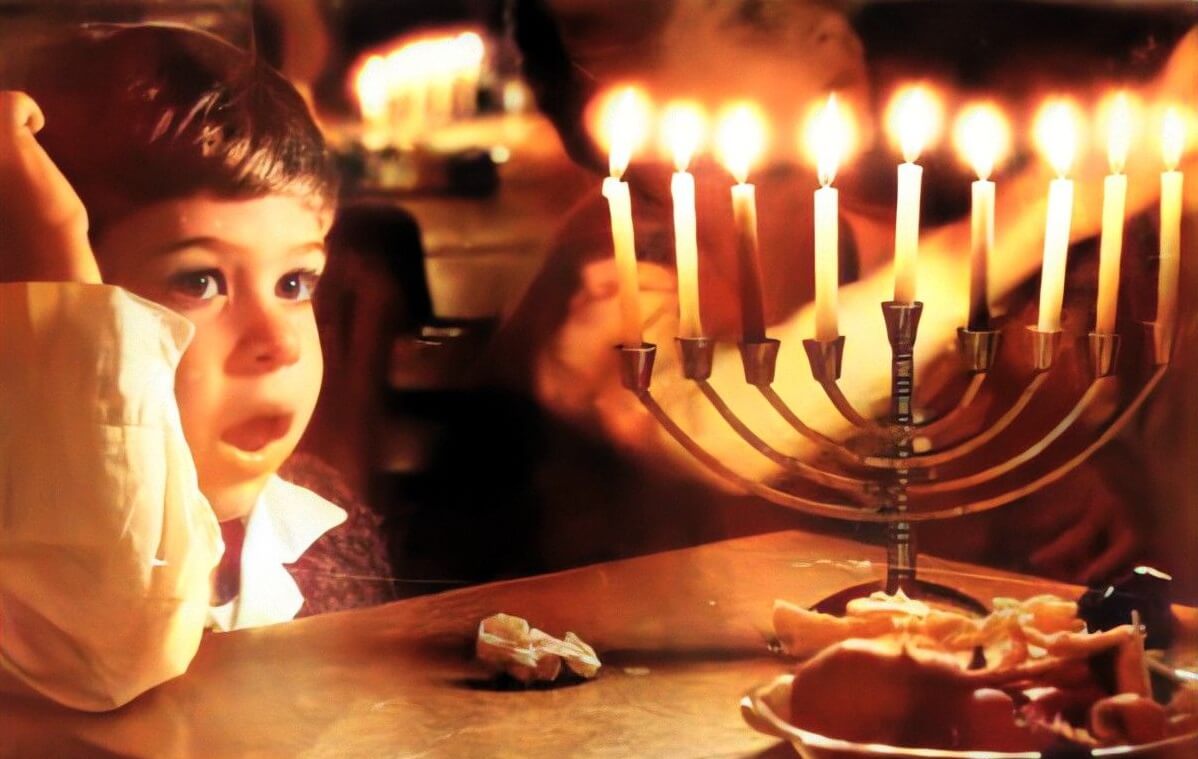
The holiday of Chanukah raises a number of questions:
-
Why do we celebrate Chanukah for eight days? After all, there was enough oil to burn for one day, so the miracle was really only for seven days. Since the holiday commemorates the miracle of the oil, we should celebrate for only seven days.
-
The minimum requirement is for each family to light one candle each night. It is customary, however, to light with two hidurim (embellishments): every member of the family lights, and the number of candles corresponds to the day of Chanukah. Why do we perform these two hidurim?
-
The Talmud in Menachot 28b relates that the Maccabees were unable to obtain a solid gold Menorah for the Temple as the Torah specifies. Lacking the means for such an expensive Menorah, they constructed a simple one out of iron rods plated with tin. Why was there a miracle for the oil but none for the Menorah itself?
Two Hidurim
The truth is, had the Maccabees not found the small cruse of pure olive oil, they could have used any oil. While it is best to use olive oil, any oil that burns well may be used in the Temple Menorah.
The miracle of Chanukah could have been the Menorah burning all eight days with “miracle oil.” But while “miracle oil” is as good as any other oil, it is not olive oil. Thus the miracle of the first day of Chanukah was not the burning of “miracle oil,” but that the Maccabees found ritually pure olive oil. This discovery was quite unexpected, and it enabled them to light with the optimal type of oil.
In addition, since the majority of the nation at the time was ritually impure, the Maccabees could even have used impure oil. The miracle of finding the cruse of olive oil thus allowed them to fulfill two hidurim: lighting on the first day with olive oil, and lighting with ritually pure oil. We commemorate this miracle by similarly performing two hidurim, with every family member lighting, and lighting multiple candles.
Guarding the Inner Spirit
But why was there no comparable miracle with the Menorah itself? Why didn’t the Maccabees also find a gold Menorah in the desecrated Temple?
The Menorah corresponds to the material state of the Jewish people. It is a vessel for holding the oil. The olive oil, on the other hand, is a metaphor for the nation’s inner spirit.
While it is fitting that the external vessel should be aesthetically pleasing, there are times when the physical reality is harsh and discouraging. During such times, we make do with what we have, even if it means lighting with a Menorah improvised out of iron rods.
However, the spirit — the oil that nourishes the inner flame — must always remain spiritually rich, with all of the hidurim of purity and holiness. This is an important part of the message of Chanukah: the miracle occurred, not with the Menorah, but with the oil. We may suffer physical hardships and deprivation, but our inner spiritual life should always shine with a clear and pure light.
(Silver from the Land of Israel, pp. 116-117. Adapted from Igrot HaRe’iyah vol. III, p. 797)